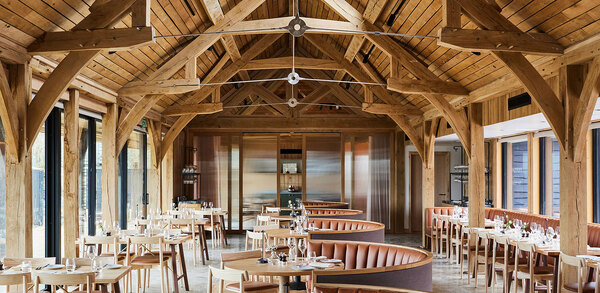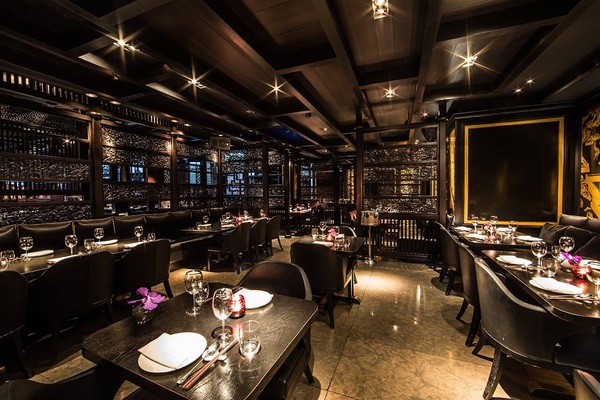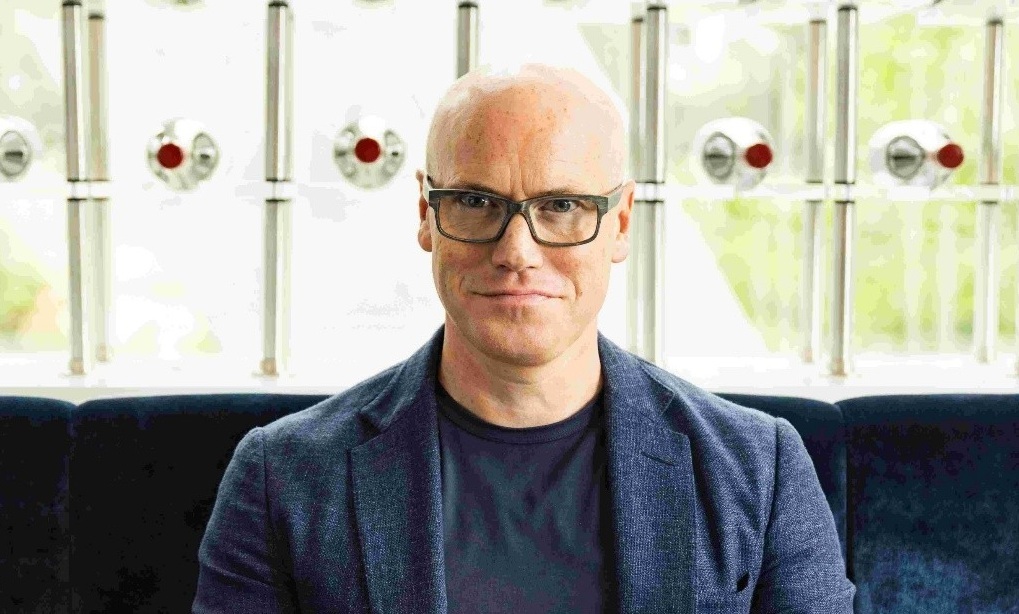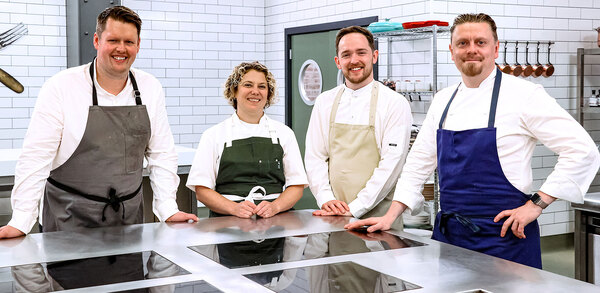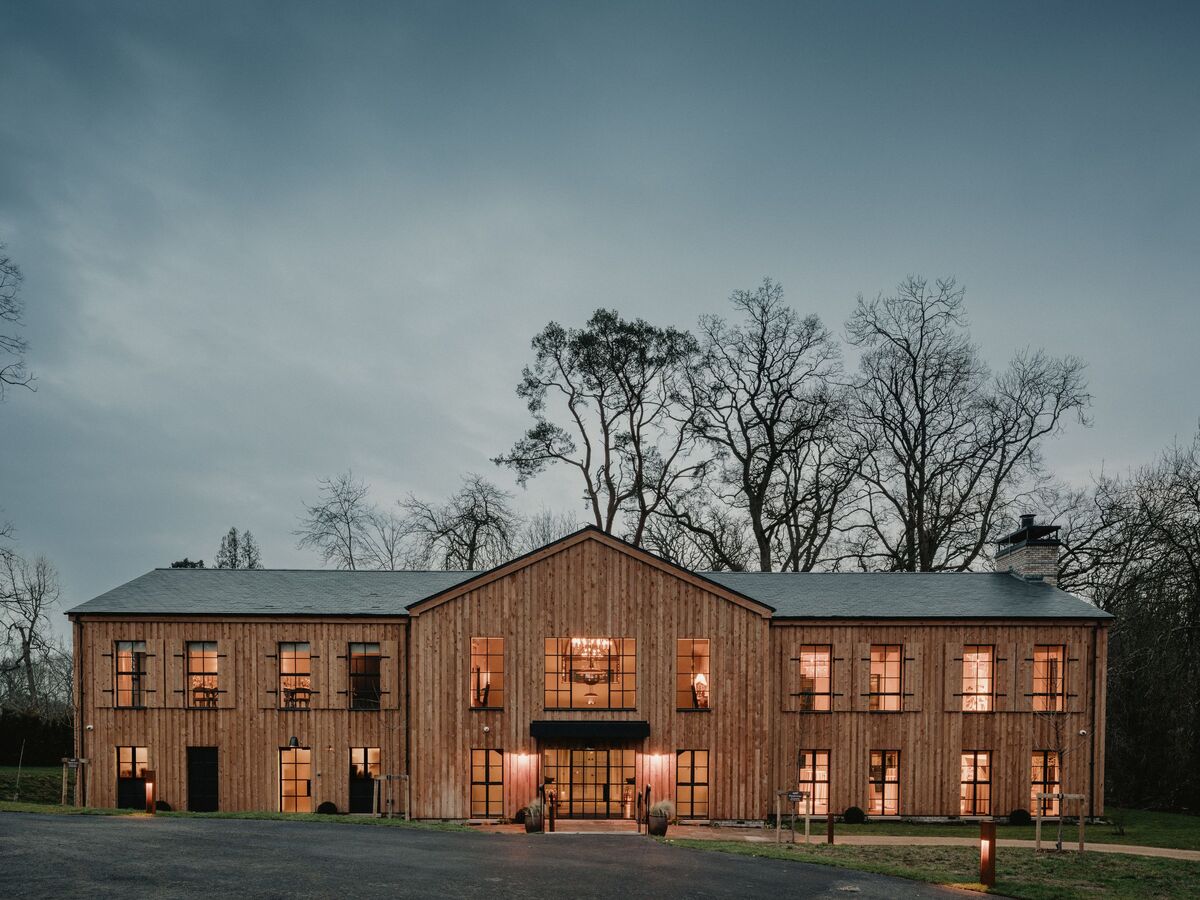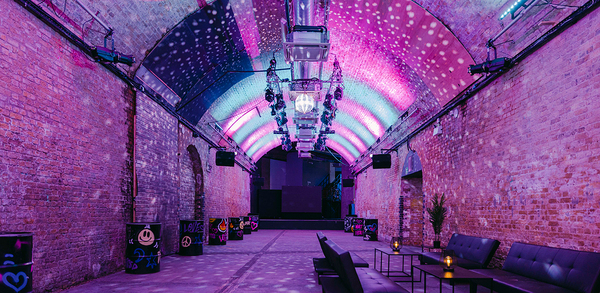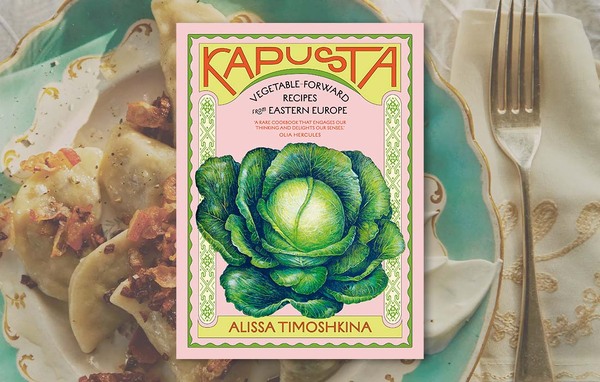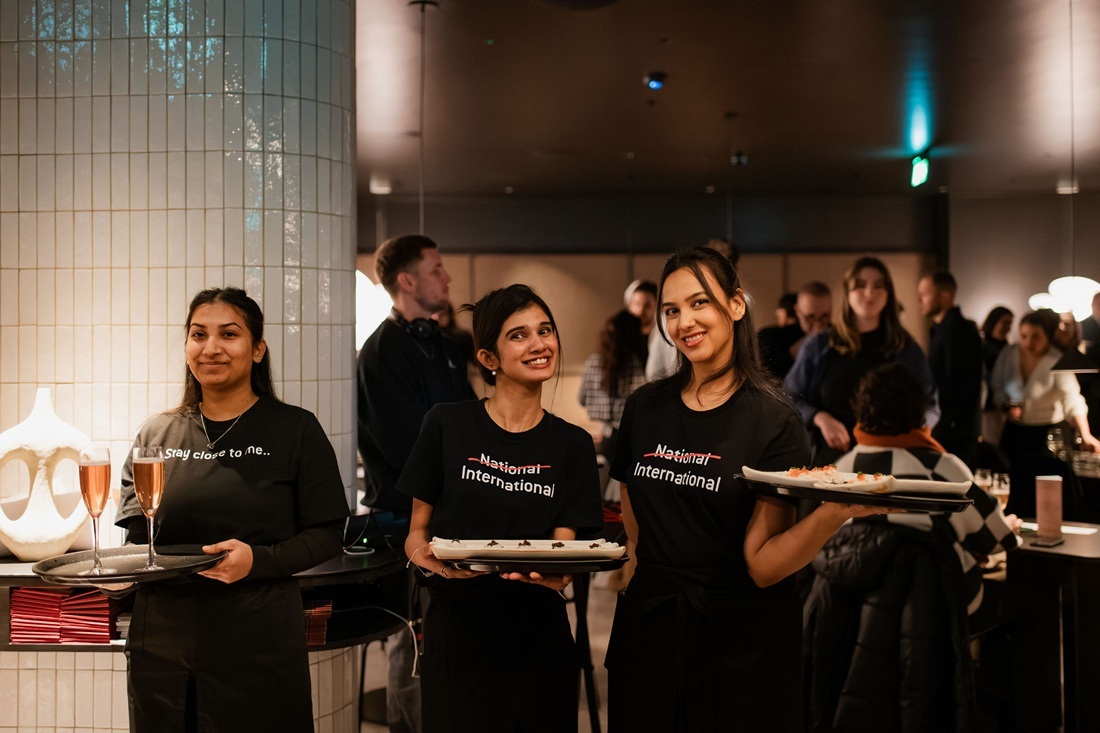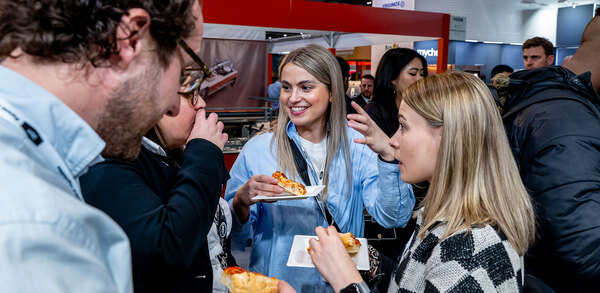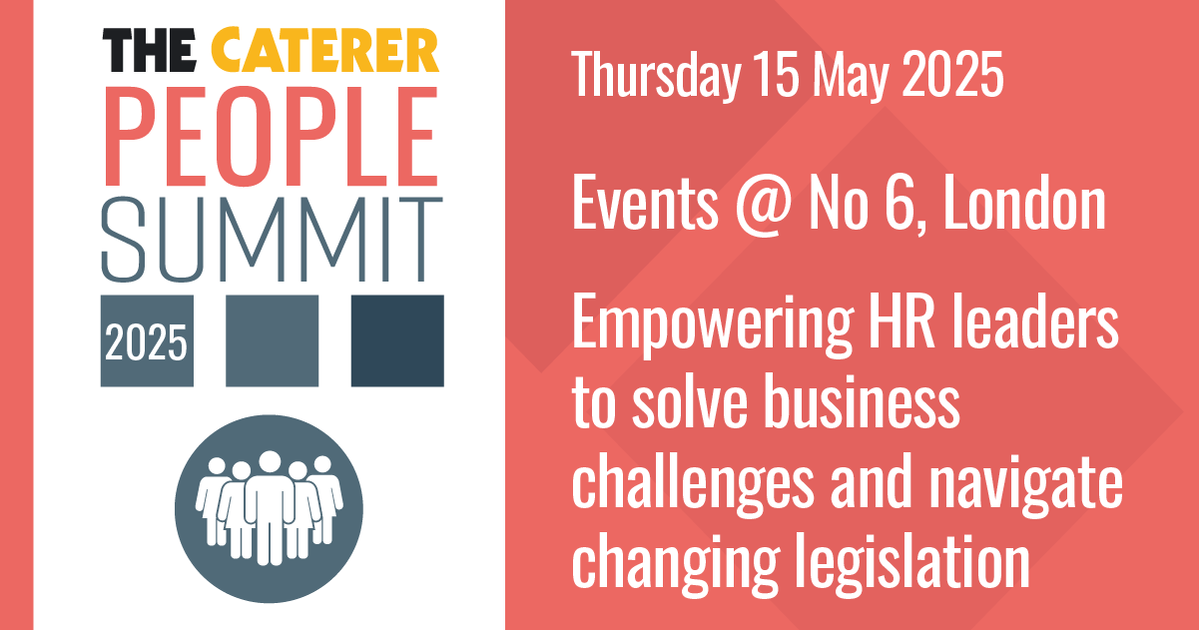The Caterer and Hotelkeeper Interview – Greg Lawson
Having brought chef Angela Hartnett on board and raised its profile with a successful Olympic hospitality contract, Smart Hospitality is a caterer making strides. Chief executive Greg Lawson tells James Stagg how the business has grown from Christmas parties to an all-round events and fixed contracts operator
What is your background in the industry?
After studying business and hotel management at catering college I was a restaurateur and a publican. I had Gregorys restaurant in Leicester and the Bell in East Langton.
Then I moved on and in 1992 I had an idea for a new concept. I'd gone into outdoor catering but the difficulty was scalability. It's why many don't make it long term.
I came up with a concept of large Christmas party venues. I set up one in Leicester and then opened up in London, Bracknell, St Albans, Manchester and Milton Keynes.
How did the idea for a Christmas events business start?
I was a restaurateur and at Christmas time I was absolutely packed and could have filled the restaurant three or four times. This was to try and give myself a temporary area for that period of time.
Where we took a different approach was going business to consumer as well as business to business. So we took mixed-party bookings rather than just one client, one party.
When we sold that business we were doing 130,000 covers in three-and-a-half weeks over Christmas. Sodexo Prestige [then Gardner Merchant] took it on in 1998 and I signed a management contract to run it for them. By 2004 I'd formed the company Quantum Leap Events as the vehicle for that. It's now my main company.
So how did Smart Hospitality come about?
In 2004 I also formed Smart Hospitality, as I wanted to cater myself again, despite the fact I was operating on Sodexo's behalf at Christmas time.
It was at this time I formed Battersea Evolution, which is the large structure in Battersea Park in London, to control my own destiny and aid scalability; and having finished the management contract with Sodexo in 2006 I turned my attention to Smart Hospitality.
How has the business grown since then?
Since then we have taken a 50% stake in Anagram Production Services to help us expand into conferences and awards dinners. The only person that walks away from those events with tinkling pockets is the production company, as it's the single biggest purchase you make. Now we can control that.
We also bought into Harlequin Events, as they have a 1,200-cover licensed hospitality site at Twickenham, where Smart Hospitality has the catering rights; and we have a small site at Wimbledon golf club.
In addition, we have the Whitechapel dining room, where we work with Angela Hartnett. We operate the dining room and all the event spaces within the building.
What does Angela Hartnett bring to the business?
She is now the creative director for Smart Hospitality and is an incredible person to have on board. Angela is the full package, offering great integrity, creativity and commerciality.
We met her just as we were talking to Locog about tendering for the Olympic Hospitality Centre contract and put to her that we would love to get her involved. We negotiated something that worked for both of us. But the real difference is that Angela throws herself in mind, body and soul. She attended all meetings and tastings as well as being on site every single day for up to 18 hours. It was remarkable.
How did the Olympic Hospitality Centre come about?
We pitched for it some 20 months ago. Originally it looked as though we wouldn't be successful and that they would run with another supplier, but they couldn't agree terms, so it went back out and we won.
We only had from July 2011 to put it together. We had up to 24 people working full-time on it, dealing with nine partners and all the Olympic sponsors. But it was fantastic.
We're already in quite developed talks on the Winter Olympics in Sochi, Russia, in 2014. We're looking to work with a local supplier and are in good shape for the tender.
We're also already talking about Rio 2016, but the focus right now is on Sochi.
Did Angela Hartnett help in your bid for Whitechapel Gallery?
Our managing director Robin Bidgood wanted to look at Whitechapel Gallery to take on. It was one that we felt would have great synergy with Angela, as she lived nearby.
We brought Robin in to look at the contracts market, as it was something I had no prior knowledge of. He was chief executive of Tate Catering so has all the necessary experience, having worked in the benchmark of the cultural world.
Do you see growth for Smart Hospitality in the fixed-site market?
We want to not only look at cultural venues but B&I as well. But Whitechapel Gallery has given us a foothold. We slowed down a bit because of winning the Olympic contract and realising we were going to have to give a good year of our lives to that project - which we have, I can tell you.
On top of that, we're looking at other major sporting events and are already in talks with regard to possibilities and are also seeking to get into other London venues as named caterers.
It's an exciting time, and despite the fact that the economy is in recession we're expanding at a healthy rate and we have an exciting future.
It's obviously extremely competitive right now. Is it a tough time to enter a sector and win contracts?
I'm sure it's a tough time, but the great thing is we have no debt, strong balance sheets and we don't need to rush. We can afford to cherry-pick and make sure we get the right contracts and keep our integrity. We're looking for measured and sustainable growth, so we'll look for the right opportunities.
Vacherin, the previous operator at Whitechapel Gallery, left early because it couldn't make it work. Is it still difficult to sustain?
It's been hard to get there, but we've turned a loss-making concern into a profitable business. The restaurant is now very busy, and we're getting to the point where we're working with the curators to ensure the space is available to enjoy the events side of the market.
From our perspective it was advantageous for us to have production kitchens in Bermondsey that could support a vibrant and regular events business. The kitchen at the dining room is quite small, so to try and run an events business in parallel was nigh on impossible. But we have the capacity to prepare off-site and turn up with the people, product, equipment and furniture at short notice and still service the dining room.
Are you looking at the cultural arena in particular?
Not in particular, but it's a natural and obvious first step, as it was what Robin came from at Tate. There were obvious connections. Across the business we have a strong toolbox of skills, and when you bring them all together it adds up to being able to deliver something like the Olympics very well.
Have you won any other fixed-site contracts?
Our second step into the contract world has been in Manchester at an enormous venue called Event City - the second-largest exhibition centre outside London. As part of the 10-year deal we're going to put in a conference centre and auditorium and run all the catering there.
Some of it will be trade shows, which is more concourse retail. But we're investing in a kitchen that will support our Christmas business and everything else we do year-round. So we will be able to cater for a trade show or a conference. It's got great potential.
What else does the future hold?
At our other sites we are planning on launching a Smart Café concept. It's based on what we do at Whitechapel Gallery and taking the concept a little further.
The café at Whitechapel is primarily for the gallery visitor, but we've been able to attract local residents and business people, too. It's based around fresh food, cooked daily and simply. Our team at Whitechapel bake on a regular basis and package it up with the branding of "Smart by Angela". The intention is to move that into other sites.
Smart Hospitality at the Olympic Games
Smart Hospitality was awarded the Olympic Hospitality Centre catering contract by Locog, and it offered a choice of Gold, Silver and Bronze service levels to each official sponsor so they could match the type and style of food and service with their requirements.
Across the 17 days of the games, led by creative director Angela Hartnett, a brigade of 132 chefs served more than 60,000 guests, preparing over 900 individual menu items.
In line with Locog's vision, more than 85% of the produce was from UK suppliers and 90% of the dishes were created fresh, daily, in a central production kitchen and sent to finishing kitchens in each suite. Only bread and cheese were bought in.
Greg Lawson believes that the scale and complexity of the event has provided useful lessons, and the company is now looking to bid for events around the world, including the Winter Games in Sochi and the Commonwealth Games in Glasgow, both in 2014.
"Doors have unquestionably opened," he says. "It's provided great exposure to national and international clients; a fantastic database of staff at all levels; and proof that Smart Hospitality has the resources, skill and know-how to deliver consistently on a grand scale."


